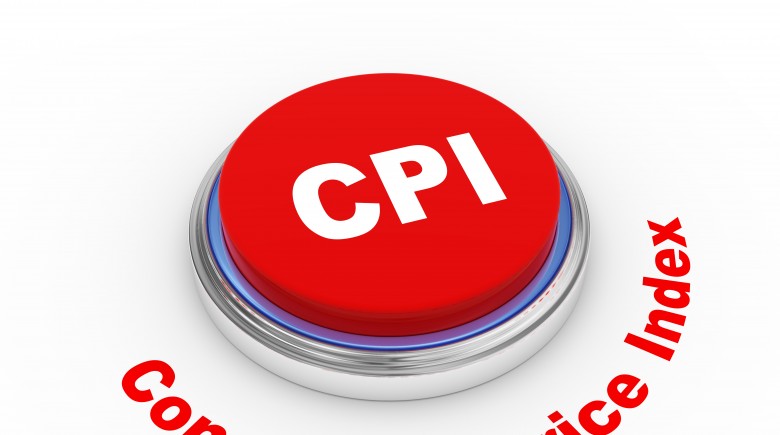The Labor Department reports that the Consumer Price Index (CPI) increased 0.1 percent in May. Heralded by food prices—falling for the first time in nearly four years— the indicator shows that inflation remains in check. In April, the CPI rose 0.4 percent. The core index, which excludes food and fuels cost, rose 0.2 percent as forecast.
Bloomberg survey of 82 economists predicted a consensus figure of 0.2 percent.
Details of May inflation report
With a 0.3 percent in May, the shelter index gain made of more than 50 percent of the “all items” increase for the month. The shelter index has two components: 1) rents for primary residence (rent) and 2) rental equivalence as it relate to homeowners.
Here are some of the other inflation numbers:
- Energy: -0.4%
- Gasoline: 0%
- Electricity: +0.8%
- Natural Gas: +2.4%
- Food at home: -0.3%
The food index, which is comprised of “food at home and food away from home”, declined 0.1 percent compared to 0.2 percent. The decrease in the food at home index (-0.3%) represents the largest drop since July 2009.Of the six major grocery store food group, four indexes registered declines— nonalcoholic beverages dropped the most by 1.1 percent.
Other indexes showing gains were recreation, airline fares (+o.4%) and apparel (+0.2%). Medical care (-0.5%) and used cars and trucks (1.6%) fell in May. On a year-over-year basis, the CPI climbed 1.4 percent for May, compared to 1.1 percent in April. The core index increased 1.7 percent from May 2012—the same as April.
Factors affecting inflation
The euro zone economy has suffered it longest recession since it’s commenced in 1999. The Euro Area has experienced six consecutive quarters of contraction— and beginning to have implications for the economies of France and Germany. Germany economy grew just 0.1 percent in the first quarter of the year. France has experienced two straight quarters of a 0.2 percent decrease.
Emerging markets economies in Brazil, India and China have also slowed down.
In addition, in the U.S. workers have not experience much of an increase in wages and salaries. American companies are watching these dynamics and have not been quick to raise prices.
Fed meeting this week
The Federal Reserve policy makers are paying close attention to the inflation numbers as they attend their meeting on Tuesday and Wednesday. The tame readings of the CPI give the Fed the room its need to focus on the employment situation and the lack of jobs.
The Fed has a mandate to reduce the unemployment rate–currently at 7.6 percent, to 6.5 percent. The private bankers will decide to adjust the asset buying program—down or remain steady. The Fed purchases about $85 billion each month in bonds.
Omair Sharif, an economist with, RBS Securities Inc. (Stamford, Connecticut) said, “We don’t’ really have an inflation issue in this country. Some Fed officials have expressed concern about inflation, but I think the Fed is cognizant of the fact that we’re probably at the low readings on inflation.”







